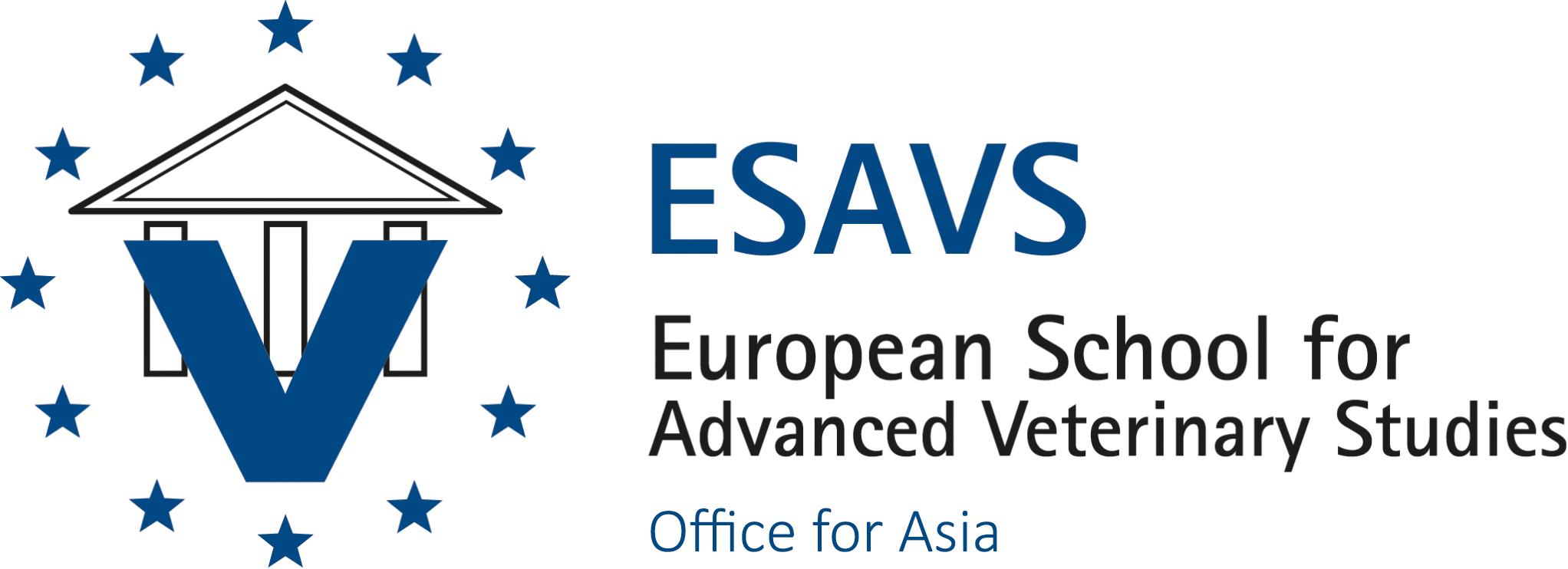Principal Course Master:
Instructors:
 Please note: This course is open to Newcomers!
Please note: This course is open to Newcomers!
Overview
The 2019 Advanced Anesthesia (Anesthesia II) course program is designed for veterinarians who wish to advance their skills in contemporary techniques of anesthetic and perioperative patient managemnt in small animal practice and have already acquired foundation knowledge in the Anesthesia I course (Basic Anesthesia). The program provides participants with a comprehensive understanding of the traditional anesthesia machinery and modern anesthesia workstations, of state of the art techniques of total intravenous anesthesia (TIVA) and high versus low flow inhalant anesthesia. Furthermore, participants will acquire appropriate skills in interpreting the ECG and treating arrhythmias, applying various forms of mechanical ventilation, and diagnosing and treating deranggements in acid-base and electrolyte status.
Topics
■ Anesthesia equipment
■ Pharmacological aspects of injectable and inhalant anesthesia.
■ ECG rhythm diagnostics and therapy during anesthesia
■ Methods of mechanical ventilation
■ Perioperative diagnosis & management of acid-base disturbances.
■ Perioperative diagnosis & management of electrolyte disturbances.
Workshops
■ Anesthesia machinery
■ High and low flow anesthesia
■ ECG rhythm diagnostics and management during anesthesia
■ Modes of mechanical ventilation
■ Perioperative acid-base and electrolyte homeostasis management
Literature reading prerequisites for the course:
■ Anesthesia machinery
■ Pharmacology of injectable anesthetics used for induction and maintenance of anesthesia
■ Pharmacokinetics of inhalant anesthetics
■ Positive pressure ventilation of anesthetized patients
■ Drugs used in perioperative management of cardiac arrhythmias
■ Physiology of the acid-base and electrolyte homeostasis
Language
All modules will be held in China, in English language with consecutive translation in Chinese.
Wednesday, 9 October 2019
08:00 – 08:30 Registration and handing out of course books
08:30 – 09:00 Welcome and introduction into the course
09:00 – 10:30 Anesthesia machines, anesthesia circuits, vaporizers & related equipment; Part I
10:30 – 12:00 Anesthesia machine, anesthesia circuits, vaporizers & related equipment; Part II
12:00 – 13:00 Endotracheal intubation techniques incl. endoscopy assisted intubation & related equipment
13:00 – 14:00 Lunch Break
14:00 – 16:00 Workshop in small groups: Assembly of anesthesia machines and rebreathing circuits, leak check & function testing, common machine failures
16:00 – 17:00 Workshop in small groups: Practice of assisted intubation techniques
Thursday, 10 October 2019
09:30 – 10:30 Total (TIVA) & partial intravenous anesthesia (PIVA) for maintenance of anesthesia – Part II
10:30 – 12:00 Applied Pharmacokinetics for the Anesthetist – Uptake, distribution & elimination of inhalant anesthetics – Part I
12:00 – 13:00 Applied Pharmacokinetics for the Anesthetist – Uptake, distribution & elimination of inhalant anesthetics – Part II
13:00 – 14:00 Lunch Break
14:00 – 17:00 Workshop in small groups: High & Low Flow Anesthesia – Computer Simulations with the Gas Man® Program
Friday, 11 October 2019
09:30 – 10:30 The most common cardiac arrythmias during anesthesia in canine and feline patients – Part I
10:30 – 12:00 The most common cardiac arrythmias during anesthesia in canine and feline patients – Part II
12:00 – 13:00 Causes and treatment of the he most common cardiac arrythmias during anesthesia in canine and feline patients
13:00 – 14:00 Lunch Break
14:00 – 17:00 Workshop in 3 small groups: Recognition and treatment of cardiac arrythmias in canine and feline patients
Saturday, 12 October 2019
09:15 – 10:30 The principles of volume-limited mechanical ventilation. Part II
10:30 – 12:00 The principles of pressure-limited mechanical ventilation. Part I
12:00 – 13:00 The principles of pressure-limited mechanical ventilation. Part II
13:00 – 14:00 Lunch Break
14:00 – 18:00 Workshop in small groups: Volume- and Pressure limited ventilation in small animal patients including clinical examples
Sunday, 13 October 2019
10:30 – 13:00 Diagnosing and treatment of electrolyte (Na, K, Ca, Mg) disturbances.
13:00 – 14:00 Lunch Break
14:00 – 17:00 Workshop in 3 small groups: Recognition and treatment of common acid-base distrubances in canine and feline patients
17:00 – 18:00 Workshop in 3 small groups: Recognition and treatment of common electrolyte distrubances in canine and feline patients
Registration and fees
Tuition fee for the members of Thai, Indonesian, Malaysian, Indian and Sri Lanka Vet. Assns: EURO 1.143,–
Early registration: Euro 1.071.--
(deadline for FULL early registration payment: 9th April 2019)
Discount Tuition fee (Hong Kong, Macao, Singapore, South Korea and Taiwan): EURO 1.520,–
Early registration: Euro 1.425.-
(deadline for FULL early registration payment: 9th April 2019)
Tuition fee (Europe, USA, Canada, Japan, Australia, New Zealand): EURO 1.943,–
Early registration: Euro 1.821.-
(deadline for FULL early registration payment: 9th April 2019)
Course Location
Birkenfeld Pet Hospital, No. 1745, South XiZang Road, Shanghai
If you have any questions regarding the registration or any other further details for the courses in Asia please contact the ESAVS Asia Office: This email address is being protected from spambots. You need JavaScript enabled to view it.


